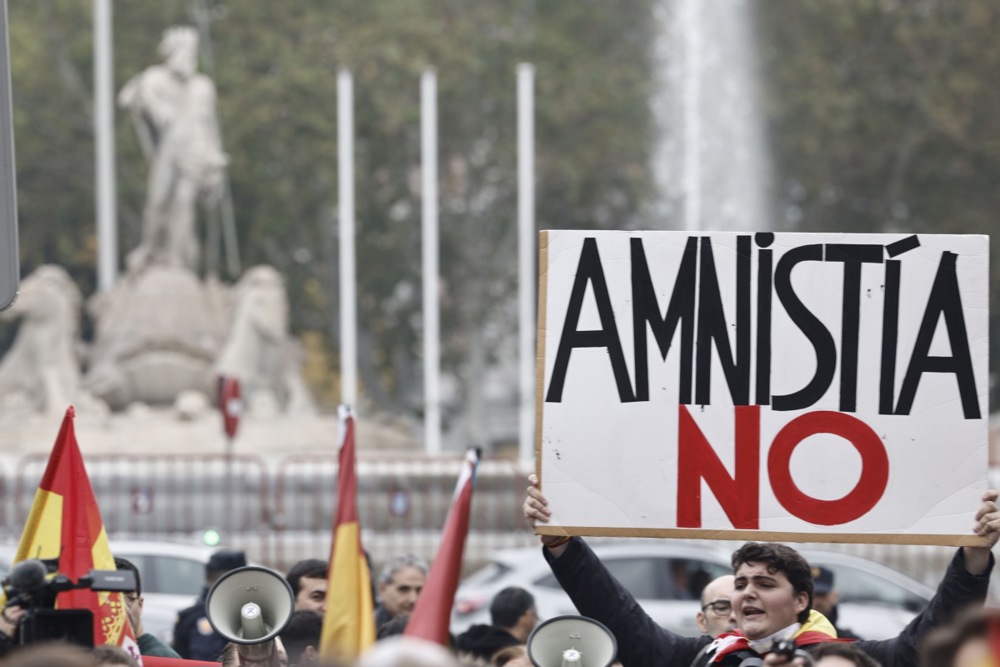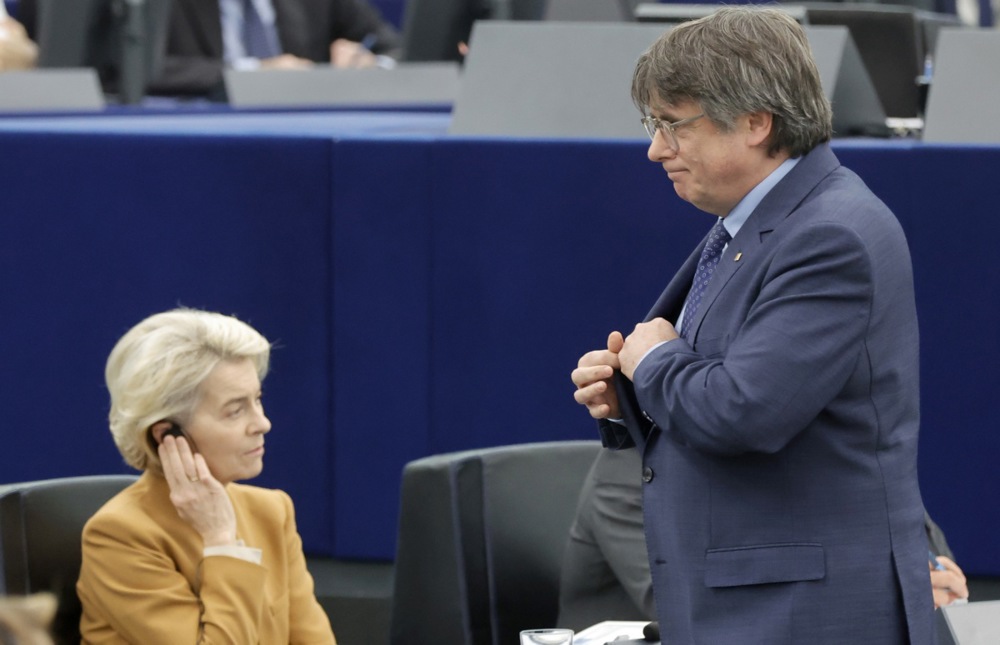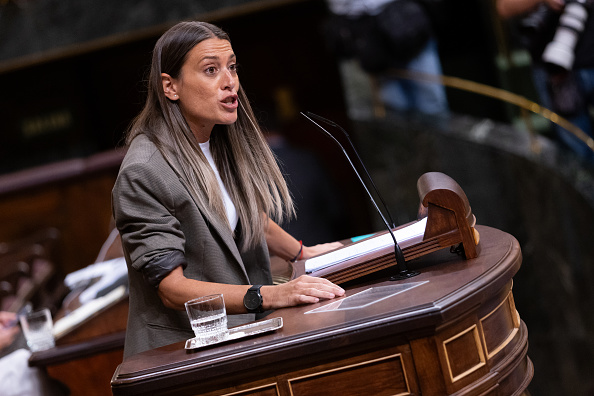It is nearly seven years since politicians in Catalunya declared their region’s independence from Spain, the short-lived announcement being almost immediately annulled by Madrid and crushed by Spanish security forces.
Those involved were subsequently branded criminals, with many ending up on the run.
While there have been no attempts by separatists to split off from Spain since then, secessionists have nevertheless made political gains across the country over the last number of years.
The most recent of these successes came on February 18 of this year, with the Galician Nationalist Bloc securing its best result ever in regional elections in its territory.
On the national level, the current configuration of the Spanish parliament has handed substantial power to both the Catalan and Basque nationalist blocs.
Despite both groups having fewer than 10 MPs in the 375-seat congress, political fragmentation following the 2023 general election has made them indispensable partners to Prime Minister Pedro Sánchez’s Socialist-led government.
Facing the prospect of a conservative-led government, Sánchez ended up brokering a deal with the secessionists, resulting in them de facto supporting his premiership bid last November.
The inner circle of MEP Carles Puigdemont had been aware of Russia’s plan to invade Ukraine since 2017, the National High Court of Spain has revealed. https://t.co/1CahotfjaL
— Brussels Signal (@brusselssignal) January 30, 2024
Such support for the Socialist government does not mean Basque and Catalan nationalism are inherently left-wing. Parties supporting such ideologies instead frequently span the political spectrum.
While Catalan Esquerra Republicana (ERC) and Basque EH Bildu favour a progressive approach that sees them frequently side with the Prime Minister’s Spanish Socialist Workers’ Party (PSOE), others — such as the Basque Nationalist Party (PNV) — have joined regional coalitions with the centre-right Partido Popular (PP).
Junts per Catalunya — the right-wing party led by high-profile MEP Carles Puigdemont — even sided with the PP and the Conservative party VOX in the first round of voting against the controversial amnesty bill that would have pardoned convicted Catalan secessionists.
Unlike the Spanish unionists, who want the legislation scrapped, Junts initially alleged the PSOE-sponsored bill lacked “enough guarantees” for its allies.
The Catalan separatist parties instead demanded a full amnesty for its friends involved in the 2017 secession crisis — including the self-determination referendum that ended up being declared illegal by Madrid — in exchange for their continued support of the new Sánchez government.
The Spanish Parliament has approved a controversial amnesty bill for Catalan separatists, sparking uproar among opposition parties. https://t.co/KcT5YH4Gdb
— Brussels Signal (@brusselssignal) March 18, 2024
After the Socialist Party reviewed the bill, Junts eventually agreed to the text and voted in favour of the law in mid-March, allowing it to pass parliament.
While the bill now looks set to be vetoed by the PP-dominated Senate, Congress is expected to override this roadblock in the coming months.
“The amnesty issue has dominated Spanish politics since the last general election in July 2023,” said Rodrigo Gómez, Director at NITID, a public affairs consulting firm in Madrid.
Such an amnesty has not been popular on the Spanish right, with PP and VOX both calling for protests across all of Spain’s major cities. The demonstrations, combined with heavy lobbying efforts, forced then-Justice Commissioner Didier Reynders to quiz Sánchez’s government about alleged legal issues with the bill.
As of writing, Puigdemont remains exiled in Belgium. He is currently wanted by the Spanish justice system over his involvement in the 2017 secession attempt though appears set to return to Spain should he win a forthcoming regional snap election in Catalunya.
Catalan separatist leader Carles Puigdemont aims a return to Spain from Belgium in the next few months and has confirmed his intention to run again for the Catalan regional presidency. https://t.co/LcKghF1ocd
— Brussels Signal (@brusselssignal) March 22, 2024





